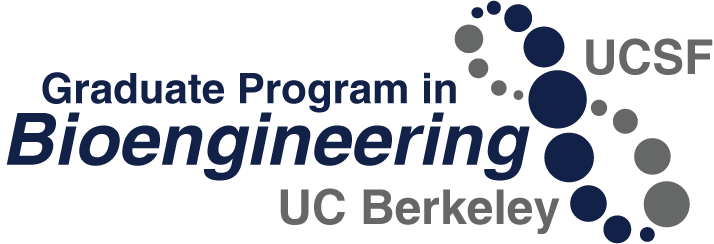Administrative Structure
The bioengineering graduate program is sponsored jointly by UCSF and UC Berkeley, and is subject to the academic and administrative regulations of the Graduate Divisions from both campuses. Although the regulations of the two institutions are similar there are a number of differences in procedures that must be addressed. The presence of dedicated administrative staff on each campus is critical for ensuring a seamless student experience while also attending to policy compliance on the two campuses.
For the last five years, administrative support for the UCSF component of the graduate program has been based in the UCSF Department of Bioengineering and Therapeutic Sciences, while support of the UC Berkeley component is managed by the UC Berkeley Department of Bioengineering.
Program Faculty
There are two levels of faculty involvement in the UC Berkeley – UCSF Graduate Program in Bioengineering, full membership and affiliate membership. As stated in the bylaws, full membership requires attendance at the Annual Research Conference at least once every three years and performance each year of at least one of the following duties: dissertation advisor, executive committee member, graduate advisor, or bioengineering course instructor. Affiliate membership allows faculty to remain on the mailing list and to attend JBGG events, but does not require them to take an active role in teaching or supervising students.
The program faculty has extensive expertise and resources covering a broad range of bioengineering topics. Core faculty have over a hundred million dollars in extramural grants, which illustrates the richness of the research environment and the program’s capability to support trainees through completion of dissertation research. This funding portfolio and accompanying training record also demonstrates the considerable track record of program faculty in training students in all areas critical to postgraduate success: mechanistic hypothesis definition, data analysis and hypothesis testing, results presentation in oral and written form, proposal writing, and statistical planning. Trainees are active in attending meetings and conferences and frequently publish their results in peer-reviewed journals.

